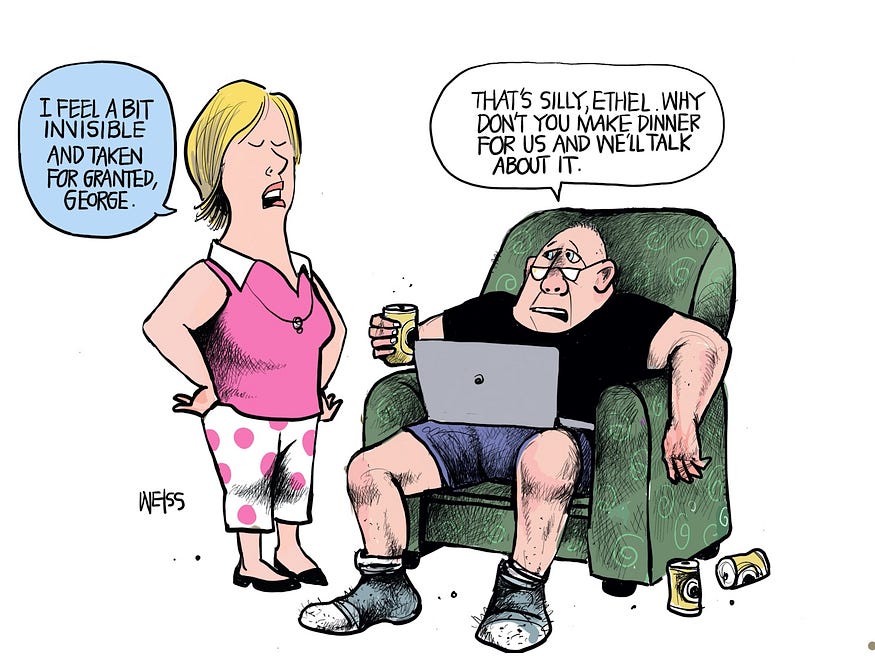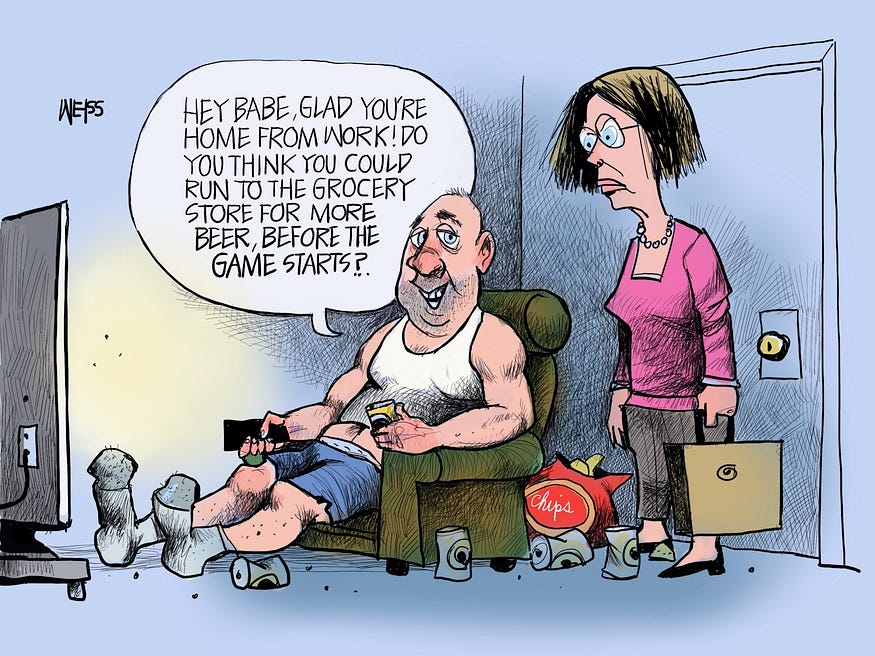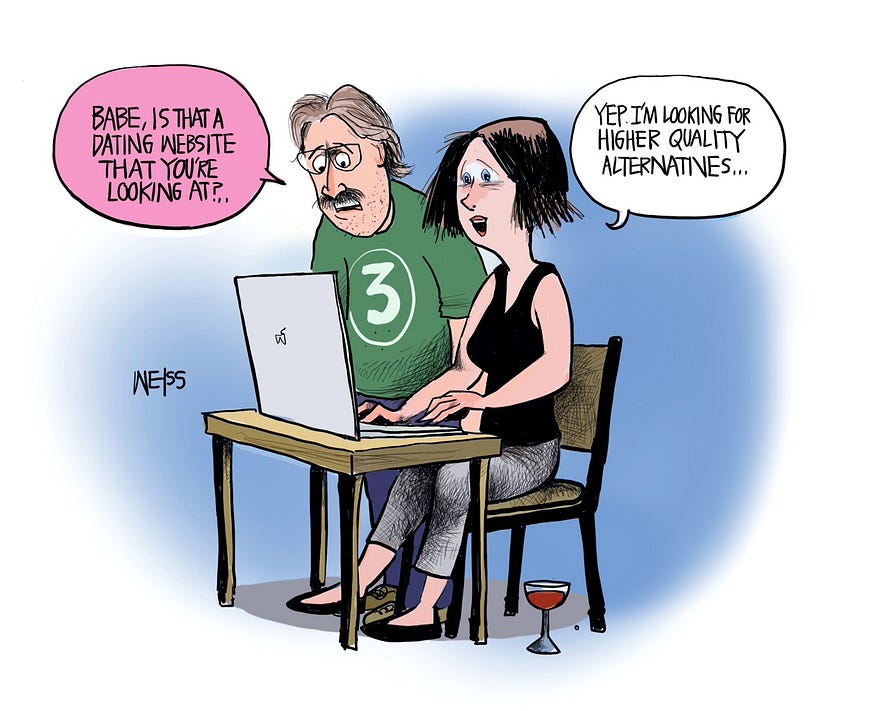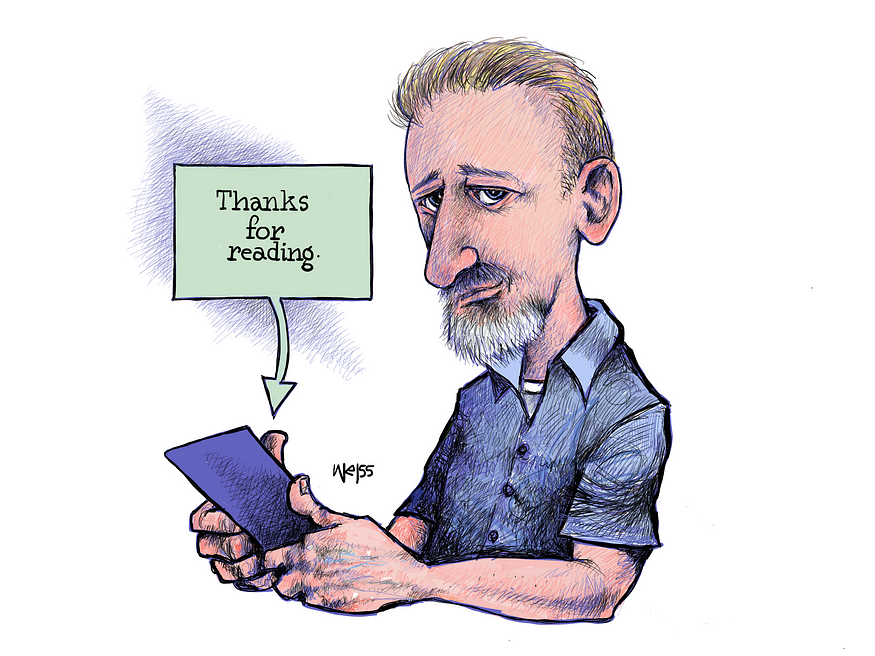RELATIONSHIP
Guess Who Has the Most Power in a Relationship?
Published
3 years agoon
By
Joe Pee
had been to their apartment twice in the last two months. This was the third time. As before, the neighbors called, no doubt tired of the loud arguments that echoed through the thin apartment walls.
She opened the door. Her hair was messy and eyes red from crying.
“Hi Lisa,” I said, “I’m Officer John Weiss. We met last month.”
“Oh, yeah. We’re fine, just arguing. My husband, Steve, can be a jerk sometimes,” she said.
“Okay, well, my partner and I just need to talk to you and your husband separately to make sure everyone is okay,” I said.
I feel a little bit invisible to him
My partner and I determined that no crime had occurred. Lisa was a stay at home mother. Steve was a mechanic who liked to hit the pub with his buddies after work. Their infant child, miraculously, slept through all the yelling.
Their arguments centered around Lisa feeling taken for granted. Steve made the money. Steve hung out with his buddies after work.
It was obvious, despite her frustrations, that Lisa loved Steve. “Sometimes he brings me flowers. He works hard, and he’s a good Dad. It’s just that sometimes I feel a bit invisible to him,” she once told me.

My partner and I dealt with a lot of couples and situations like this. Some turned into domestic violence incidents, but many were the kind of common arguments that spouses have.
Money, sex, and children are often the issues that couples fight over. But beneath the surface, unmet expectations and diminished self-respect can be the real problems.
Too soon old, too late smart
The late Gordon Livingston, M.D. was a graduate of West Point and Johns Hopkins School of Medicine. Awarded the Bronze star for valor in Vietnam, he went on to become a psychiatrist and writer.
In 13 months, Dr. Livingston lost one son to suicide and another to leukaemia. He deeply understood the human condition and tragedies of life, and poured wisdom into his eloquent, succinct books.
One of my favorite books by Dr. Livingston is “Too Soon Old, Too Late Smart: Thirty True Things You Need to Know Now.”
If this book had been published in the early 1990s, and I had read it as a rookie cop, I would have had some valuable advice for Lisa. Specifically, chapter five of Dr. Livingston’s book, which contained the following title:
“Any relationship is under the control of the person who cares the least.”
A sort of enlightened self-interest
It was clear to my partner and I that Steve had taken his wife Lisa for granted. He was the income winner. He had the freedom to socialize with his buddies after work. Lisa was home all day with their child. She made dinner for Steve when he came home.
Steve wasn’t a bad guy. He was always polite and apologetic with us. But whether intentional or not, he seemed to care less about his marriage than Lisa.

It isn’t supposed to be this way. We all dream of falling in love and entering a relationship built on mutual love, respect, and admiration.
Maybe the problem is in how we approach relationships? Instead of accepting our partners the way they are, perhaps we foist too many expectations on them?
Listen to Dr. Livingston as he describes how most people find a partner:
“The ways in which people come together and choose each other place a great emphasis on the potent combination of sexual attraction and a sort of enlightened self-interest that evaluates the other person on a series of qualities and achievements: education, earning potential, shared interests, trustworthiness, and philosophy of life. Each person’s assessment of a prospective mate using these standards creates a certain set of expectations. It is the failure of these expectations over time that causes relationships to dissolve.”
So what do you do when expectations are not met? How do you right the ship if your partner cares less than you do about the relationship?
Good communication is important. You have to broach difficult issues and feelings with your partner. Lisa did that in her relationship with Steve. She knew he held the power and she felt taken advantage of. Steve promised to change, but somehow things always slid back to the same old problems.
Higher quality alternatives
Psychologist Esther Ghijsen noted in the article “Love Hurts” for United Academics Magazine the following:
Research shows that the more power someone has in a relationship, the less committed he is to it (Grauerholz, 1987).
If you’re the one without the power in a relationship, what should you do? Here’s what Dr. Ghijsen advises:
In order to gain back control, you need to acknowledge your fears, and then toss them aside. A new study shows that the one who’s in power in a relationship also has ‘higher quality alternatives’ in life — which means his family, free time, friends and other dating partners are of greater value to him. Here lies the key to solving your problem: start building those alternatives yourself. Go out with friends, start that new course or class, host a dinner party for your family — invest some time in people that are not your lover.

A lot of marriages risk the slow march towards alienation. Eventually, one ends up showing and/or expressing less respect and affection for the other.
According to Dr. Livingston, the person who cares less “appears to be a bid to seize control of the relationship.” Dr. Livington goes on to note the following:
“That this effort has been successful can be seen when one spouse has a greater investment in reconciliation and is much more upset at the prospect of ending the marriage. When I point out to people that much of the distress they are feeling is not shared by their partner and that this is the source of their feeling ‘out of control,’ they are usually quick to recognize their predicament. While it takes two people to create a relationship, it takes only one to end it.”
It’s possible to reinvent yourself. You are not defined by who you are today or the status of your relationship. People can improve themselves, and their relationships.
Everything is within your power
Consider the story of Joseph Pilates. He was sickly as a child, and studied various self-improvement systems. He examined Eastern practices like Zen Buddhism and admired the ancient Greek ideal of man perfected in body, mind, and spirit.
An article about Joseph Pilates in VeryWellFit.com noted:
“German-born Joseph Pilates was living in England and working as a circus performer and boxer when he was placed in forced internment in England at the outbreak of World War I. While in the internment camp, he began to develop the floor exercises that evolved into what we now know as the Pilates mat work.”
Joseph Pilates, against great hurdles, changed who he was. From a sickly child to a self-confident, physically fit man.
Even with meager resources, it’s possible to change your life. That’s precisely what Lisa did.
Several months went by after our last domestic disturbance call involving Lisa and Steve. I worried that maybe things fell apart and they divorced. Then one day while on duty, I bumped into Lisa at a coffee shop.
“Hi Lisa, how are you?” I asked.
“Officer Weiss, hello. I’m good. Real good,” she said. There was a radiance about her and she looked fit and happy. I noticed she was wearing exercise clothing.
“Been working out?” I said.
“Yeah. I found a Pilates class here in town awhile back. It’s been great. I met these two girls there, and we became great friends. They have kids too, and we hang out a lot.”

Lisa went on to tell me that the Pilates class saved her marriage. She got physically fit and gained new friends. Her self-esteem and self-confidence grew. And, it didn’t hurt that her fitness attracted the admiration and glances of other men.
“At first it drove Steve crazy. Every time he saw some guy looking at me, he got jealous. But then he noticed my new circle of girlfriends and the life I was creating for myself. Since then, Steve has been great. He’s home right now with our daughter, so I have to run.” Lisa smiled and thanked me for helping her out.
“Everything is within your power,
and your power is within you.”
― Janice Trachtman
Just like Joseph Pilates, Lisa was in a difficult situation, but she marshaled the resources she had, and transformed herself into a strong, independent woman.
She invested in herself, and changed the power dynamic in her relationship. As a result, her husband Steve saw her differently, and stopped taking her for granted.
This is how you avoid becoming a victim. You invest in yourself. You refuse to put your happiness at the mercy of another’s attention or approval. You give love and respect but expect both in return.
There are no guarantees in life, and some relationships are unhealthy despite best efforts. But for many, taking an approach similar to Lisa’s can rebalance the power in a relationship.
Invest in your fitness, find good friends, and show your significant other your independent, self-confident side. Doing so could change your relationship for the better.
Before you go

I’m John P. Weiss. Writer, artist, and retired police chief. Get on my free email list here for the latest writing and artwork.
























